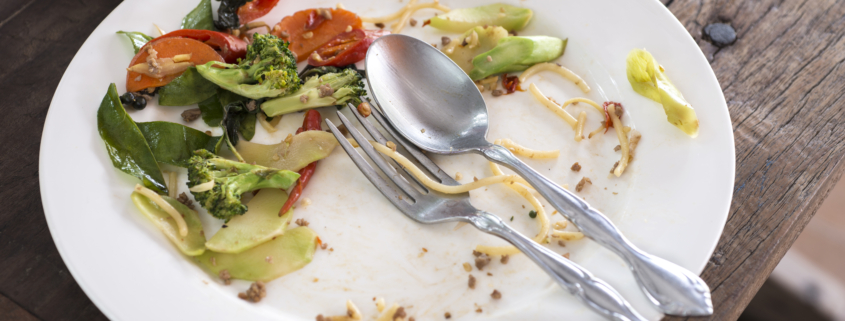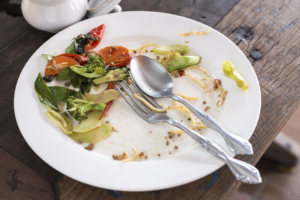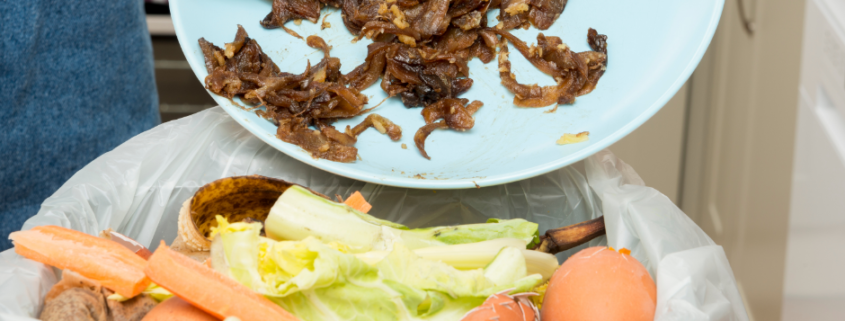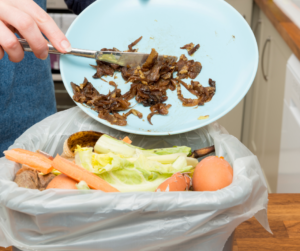4 Tips to Honor Your Fullness
One of the biggest lies diet culture pushes onto you is that there is an exact calorie or amount of food you should be eating every day. Diet culture also tells you to use outside sources to help guide your eating. Whether it’s tracking calories, points, macros, or using food lists or pre-made meal plans—these are all outside sources telling you “How much to eat”.
But guess what? You don’t need anything or anyone telling you when or how much to eat. You have the tools built inside of you, better known as your hunger fullness cues. These are innate feelings that tell you exactly when to start and stop eating. However, the feelings of hunger and fulness can be interrupted by long standing diets!
Can Hunger and Fullness Signals Return
The answer is yes. Once you ditch the diets and outside rules and learn to tune inward, you can reignite your inner cues!
I have found with my clients that attuning to hunger cues happens a bit quicker than fullness cues. There are many perceived barriers and social pressures that can cause you to eat passed the point of comfort. Perhaps you eat out of obligation and feel it would be rude to your hostess by not eating everything on the plate. Or you are distracted when eating out socially and miss that point of comfortable fullness. Or even still, you are really enjoying your meal and don’t want it to end.
4 Tips to Honor Your Fullness:
1: Be patient
When I talk about patience, I am referring to both patience as you eat your meal, and patience in your expectations of when you will attune to the signal.
In the fast-paced society we will live in, it’s easy to speed through your meal to get to the next task. Be kind to yourself, and your body, and make it a goal to slow down and not rush through the meal, be patient. Give yourself plenty of time to focus on what you are eating, savoring every bite. In this way, you will pick up your fullness signals more so than if you just focus on finishing the food on your plate.
You’ll also want to practice patience when it comes to actually hearing your fullness signals. It will take time for you to attune to it, especially if you’ve been dieting for a long time. There is no rush, it will come!
2: Check-in with Yourself
If you never pause to check it with how you are feeling, how will you learn to pick up the signals of your body. It’s important to periodically check in and ask yourself if you are getting less hungry and if fullness is starting to emerge. If you are still hungry, by all means continue eating. And if you are starting to feel full, perhaps now is a good time to consider finishing the meal. You are in charge.
3: Leave the Clean the Plate Club
This is one membership that does not have your best interest at heart. If you are finishing your plate because you are part of the clean the plate club, it’s time to re-evaluate. There are any number of reasons why you are a member of this club, but realizing the damage it’s caused you will help you respect the feelings of fullness you experience during the meal. You don’t have to throw away food! You can always save it for later or the next day. Just imagine how delicious it will taste when you are hungry again.
4: Set up a Positive Home Environment
Make your home a place for success by clearing space at a table for mealtime. When you have a designated area to eat your meals at, you are more likely to focus on the food in front of you. This space should be free of distractions like television and computers.
I recognize that it might take a while for your signals to reappear, and for you to trust them. Take your time, be patient, and enjoy the ride!






